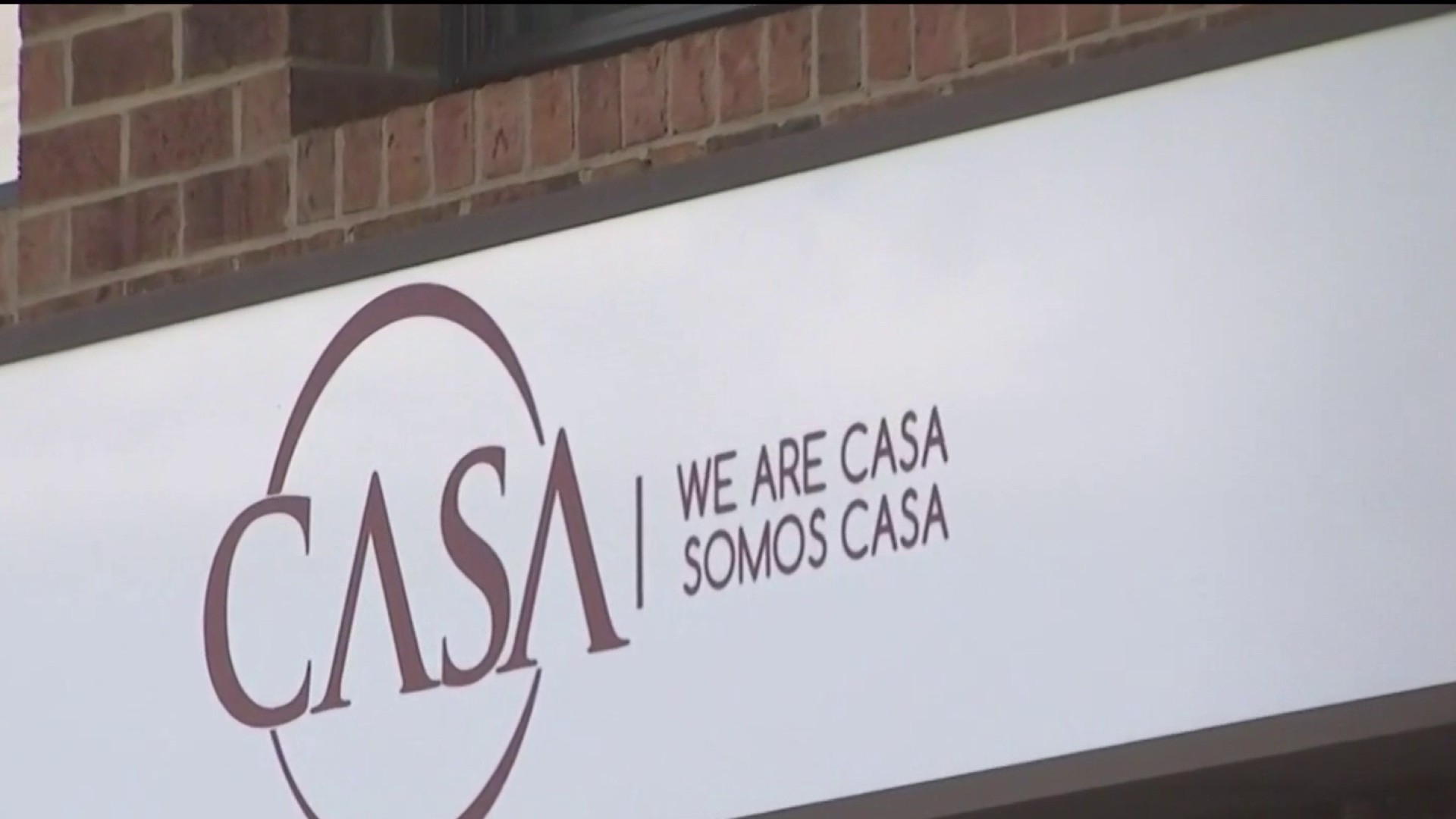The Prince William Board of County Supervisors on Tuesday revoked more than $1 million in pandemic aid from immigrant advocacy group CASA after a county audit found the organization spent nearly $200,000 on items that didn’t qualify for federal funding.
WTOP’s Scott Gelman speaks to Occoquan District Supervisor Kenny Boddye about CASA’s abuse of federal COVID aid
This article was republished with permission from WTOP’s news partner InsideNoVa.com. Sign up for InsideNoVa.com’s free email subscription today.
The Prince William Board of County Supervisors on Tuesday revoked more than $1 million in pandemic aid from immigrant advocacy group CASA after a county audit found the organization spent nearly $200,000 on items that didn’t qualify for federal funding.
In a bipartisan vote, the board moved to redirect CASA’s remaining relief funds to other organizations and initiatives in need of additional funding. Leaders with CASA, a national nonprofit with a location in Woodbridge that supports immigrant families, in response claimed the county wasn’t transparent enough with the organization on how it was permitted to spend funding.
CASA in 2022 was approved by the board for $2 million in federal COVID-19 aid that could be used to reimburse expenses only for building a “training lab” and supporting “programming start-up costs” at its Prince William County welcome center, according to county documents.
A county audit obtained by InsideNoVa alleges the organization between July 2022 and June 2023 spent hundreds of thousands of dollars on expenditures that were deemed out of alignment with the parameters allowed in an agreement CASA signed with the county.
Expenses included marketing materials and infrastructure costs at unauthorized locations. The group spent thousands of dollars on marketing items such as lip balm, hand sanitizer, drawstring bags, hoodies, lanyards, thermometers, sunscreen, pill boxes and “fidget fun blocks” as well as a personal development English Second Language course for an employee, county documents show.
Because the expenditures didn’t meet the federal guidelines, CASA’s requests for reimbursements were denied.
The audit found the organization also spent more than $25,000 on administrative and utility costs at locations other than the one in Woodbridge. CASA made dozens of other non-compliant expenditures that ranged in price from a few hundred dollars to $14,000, according to the audit.
CASA Chief Operating Officer Melissa Guzman in an interview with InsideNoVa alleged the county did not clearly communicate with the organization what types of expenditures were permissible under the agreement. According to a copy of the contract signed by Guzman, CASA agreed that funds could only be spent in compliance with federal law, which the board alleged was not done.
“This experience that we’ve had here [in Prince William] is singular,” said CASA National Communications Director Jossie Flor Sapunar. “This lack of clarity, this lack of transparency in the process is not what we’ve found in other spaces.”
CASA’s pulled funding will be reallocated to the Northern Virginia Food Rescue for food distribution and related administrative costs; the county’s community safety initiative, which is developing community violence prevention and intervention plans; renovation of the county Judicial Center; and the The Human Services Alliance of Greater Prince William.
The measure to revoke and reallocate the funds passed with support from Democrats Chair Deshundra Jefferson, Potomac Supervisor Andrea Bailey, Occoquan Supervisor Kenny Boddye and Republicans Brentsville Supervisor Tom Gordy, Coles Supervisor Yesi Vega and Gainesville Supervisor Bob Weir.
“This is not how I wanted to begin my relationship with CASA,” Jefferson said. “This is a policy vote. It is not a political vote. And I have tried very hard to keep politics out of the board chambers.”
Jefferson and other Democrats who voted to revoke funding left the door open for future collaboration with the organization to help it find alternative sources of funding.
“I am proud to have the welcome center in my district, and I am proud of the work that CASA does for our community,” said Boddye, whose district is home to CASA’s Woodbridge welcome center. “These are federal dollars that have very specific uses for them and, as we discussed, specific deadlines for them. This has been clearly audited.”
Angry, Franklin oppose
Neabsco Supervisor Victor Angry and Woodbridge Supervisor Margaret Franklin, both Democrats, opposed the plan after their efforts to seek a remedy for CASA failed. Both had hoped to put off pulling the funds to allow the organization more time to balance its books. Franklin unsuccessfully pushed for the board to allow CASA to retain a larger portion of its remaining funds.
“There have been growing pains with the allocation process of [pandemic aid], and without playing the name game of who did what wrong, I believe the fair and impartial solution is to extend the funding measure to a time that makes sense for all,” Angry said in a statement prior to Tuesday’s meeting.
Jefferson and other supervisors last week said they were potentially anticipating CASA to take legal action against the board after an attorney with the organization sent a letter to the county.
Angela B. Styles, an attorney for CASA, wrote in the letter requesting that the board delay voting on pulling the funding.
“While we are still reviewing grant documents and the facts, CASA has undertaken significant efforts in reliance on PWC’s grant award and are concerned the compensatory and consequential damages may be significant,” Styles said.
Gustavo Torres, CASA’s executive director, last week also responded to the county audit in a statement to InsideNoVa.
“CASA undergoes an independent audit of its organizational finances annually and has undergone a federal A-133 single audit annually since 2014,” Torres stated in an email. “Its audits have always reported responsible financial management, and its financial statements are free from internal control deficiencies.”
Torres continued, “This capital project officially launched in 2021. At that point, we had existing vendors associated with the project that had previously undergone CASA’s procurement process. CASA was able to initiate the project with the generous support of the Commonwealth of Virginia. Since then, the majority of the renovation funds expended in association with this capital project have been CASA funds. We look forward to serving Prince William County’s immigrant and Latino populations who are counting on these infrastructure improvements for job training and economic mobility.”
Editor’s note: The CASA referenced in this article is different from CASA (Court Appointed Special Advocates), which works with children in the court system.







